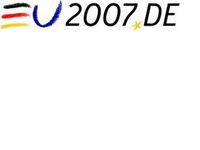15
ponedjeljak
siječanj
2007
Facing the past - "spacing" the future
Fifteenth anniversary of the international recognition of Croatia is being celebrated today. Articles in domestic papers make me think how actually little people know about a recent history of Croatia, its neighbours, and the role of Croatia in the wars of 1990s. The historical truth is something that is always conditioned by subjective interpretation and influenced by already existing historical memory. But, in order to achieve true and functional co-existence with members of national minorities in Croatia, predominantly with the Serbs, and in order to pursue functional and long-lasting relations with the neighbouring countries, it seems to me that the recent history should not be swept constantly under a carpet. Establishing the objective picture of what happened in 1990s and also prior to the disolution of Yugoslavia, would probably be unacceptable for many Croats. It is enough to take a look on discussion lists beneath electronic articles that deal with the Serbs or with the war in 1990s to notice immense amount of hatred, hate speech and intolerance. However, I am convinced people would dare to insult “the Others” less if they would become aware that also “their” side was committing war crimes. In spite of the fact that some of those were human rights violations were proven before Croatian Courts, there are too many of those who think “svi smo mi Mirko Norac”. Hopefully there are also more and more of those who do not equalize themselves with a proven war criminal.
ICTY is by no mean a reconciliatory mechanism, but again, because of political establishment’s unwillingness to present it as a tool for establishing the truth, its activity is predominantly perceived as unjust, biased, and many Croats do not believe that this institution might actually help to “purify” the guilt of the nation by proving the faults of individuals committed the war.
I am aware that an average reader of daily newspapers or someone who gains information only by watching the news of Croatian TV won’t actually search for other sources of information, which is a pity. Such lack of curiosity and personal intellectual apathy is probably a consequence of the mentality, but also of poor educational system that did not foster curiosity, as well as of propaganda applied form state-controlled media in 1990s.
Luckily, however, for those who are willing to spend a part of their time to find out why the dissolution of Yugoslavia really took place, who question was it unequal and unjust budgetary distribution or suppressed nationalism in the republics were the reasons that caused it, what was the role of historical personalities in this process, might find sources that can satisfy their curiosity. Those and many other questions are e.g. attempted to be answered by an international consortium of eminent scholars gathered under the name of “the Scholars’ Initiative”. From the explanatory document on project objectives at the web site of the Initiative it can be read that “the Scholars’ Initiative represents an attempt by scholars to bridge the gap that separates their knowledge of the tragic events of the period 1986-2000 from the proprietary interpretations that nationalist politicians and media have impressed on mass culture.”
The research of the Scholars’ Initiative “expect to narrow the cognitive gap between peoples by simultaneously validating evidence and discrediting unfounded, proprietary myths through a combination of sober scholarship and sustained interaction with media and public officials. Indeed, such an international consortium of eminent scholars can furnish a common, and ostensibly legitimate, alternative account on which moderate opinion leaders can lean for support. The credibility of the Scholars’ Initiative will be based not only on the indisputable scientific credentials of its participants, but on the transparent impartiality of its methodology as it solicits and examines evidence presented by all sides, then jointly evaluates and (in)validates the documentary material through the application of universal scientific methodologies.” I warmly recommend it, as I used their articles as waluable refference in the report I just today completed for the project on human and minority rights in the life-cycle of ethnic conflicts that employs me.
komentiraj (6) * ispiši * #
10
srijeda
siječanj
2007
Deutschland, Deutschland über den Problemen der EU

Njemacka je 1. sijecnja preuzela sestomjesecno predsjedanje EU-om, te je dobro procitati da ce prioritet istoga biti "stabilizacija zapadnog Balkana i nastavak njegova pridruživanja EU-u". I jos jedna goruci balkanski krompiric trebao bi biti (nadajmo se) serviran (ispravno i s paznjom) tjekom njemackog manadata:buduci status Kosova.
Vec mi se cini da ja svakih sest mjeseci ushiceno najavim kako se nadam da ce EU s vise milosrdja gledati na nas kraj svijeta, a onda se pred kraj predsjednikovanja osvjestim i shvatim da smo ipak mi marginalna tema na EU repertoaru.
Vrijedni Njamci odlucili su ambiciozno, jos davno prije nego im je manadat zapoceo, ostaviti trag u EU povijesti. Najavise da ce se prihvatiti revizije europskog Ustava te spremaju novu verziju ugovora. Zivi bili pa vidjeli. Ja nekako gadno sumnjam da ce nesto po tom pitanju i postici!
komentiraj (3) * ispiši * #
